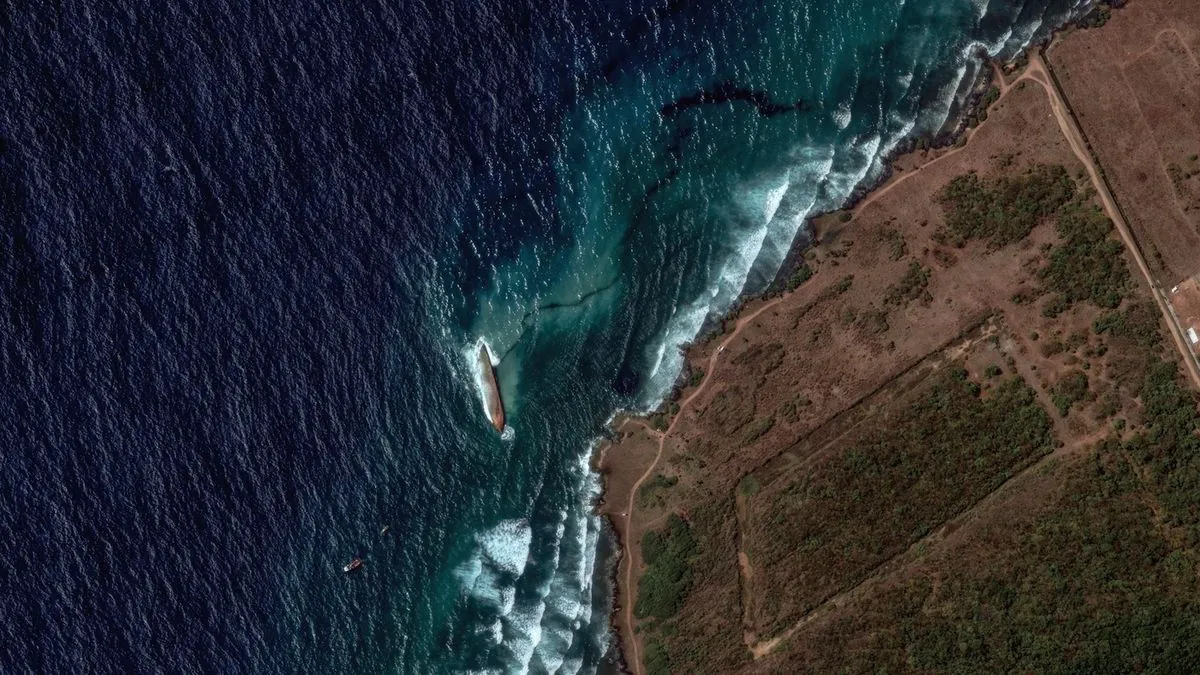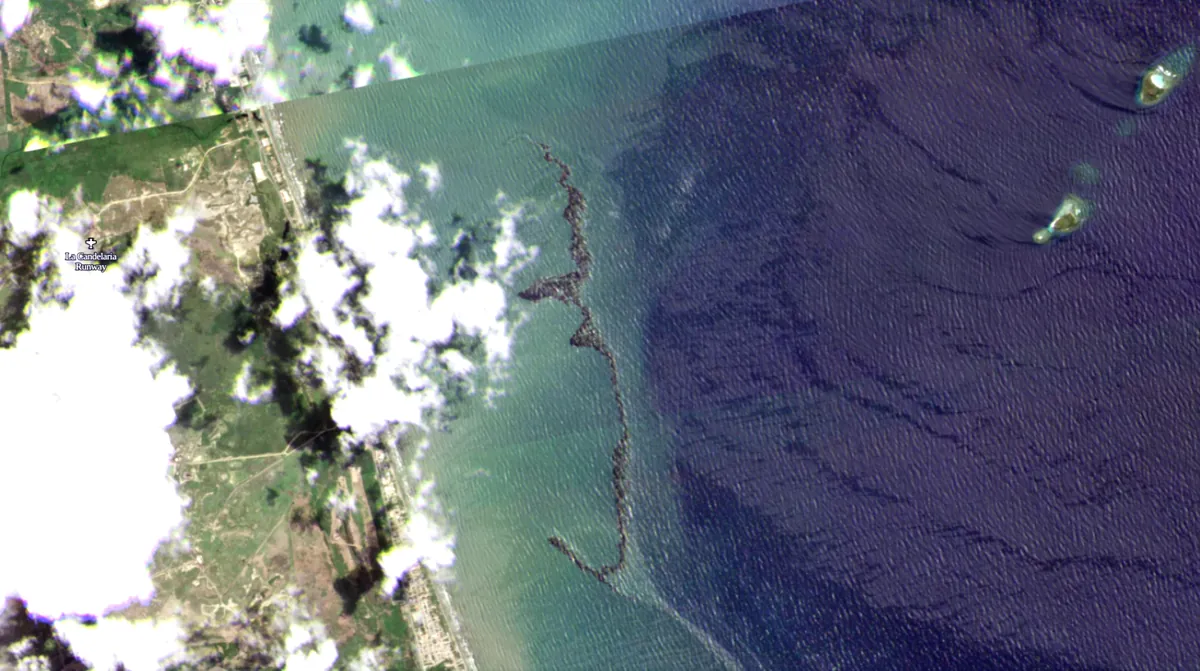Oil Spill from Venezuelan Refinery Contaminates Caribbean Coastline
An oil spill, believed to originate from Venezuela's El Palito refinery, has contaminated the Golfe Triste and Morrocoy National Park. The incident has impacted local beaches and fishing activities, raising environmental concerns.

Approximately one year ago, a significant environmental incident occurred off Venezuela's north-central coast. An oil spill, suspected to have originated from the El Palito refinery, contaminated a substantial area of the Caribbean Sea, including the Golfe Triste and Morrocoy National Park.
Eduardo Klein, a biologist, shared satellite imagery on social media platform X, revealing the extent of the contamination. The oil slick reportedly covered an area of about 225 square kilometers, encompassing the entirety of Morrocoy National Park, a region renowned for its palm-lined beaches and vital mangrove ecosystems.

The El Palito refinery, Venezuela's smallest oil refining complex with a daily processing capacity of 146,000 barrels of crude oil, is located in the Puerto Cabello municipality in Carabobo state. Built in 1960 and modernized in 1998, this facility has played a significant role in Venezuela's oil industry, which boasts the world's largest proven oil reserves.
The environmental impact of the spill was immediately apparent. Local sources reported that beaches in Boca de Aroa were heavily affected, with large quantities of hydrocarbons washing ashore. The incident also impacted artisanal fishing boats, a crucial source of livelihood for many coastal communities in the region.
"This morning some beaches in Boca de Aroa woke up with a lot of hydrocarbons on the shore and it affected some boats, some artisanal fishing boats."
At the time of the incident, neither the state-owned Petroleos de Venezuela (PDVSA) nor the oil ministry provided immediate comments on the situation. PDVSA, founded in 1976, has faced significant challenges in recent years, including declining production and maintenance issues, which have been exacerbated by Venezuela's ongoing economic crisis.
The contamination of Morrocoy National Park, established in 1974 and covering 32,090 hectares, is particularly concerning. This protected area, known for its rich biodiversity, plays a crucial role in the local ecosystem and economy. Mangroves, which are abundant in the park, provide essential habitats for various species and protect shorelines from erosion.
Oil spills can have long-lasting environmental impacts, potentially affecting marine life for decades. The incident highlights the importance of proper maintenance and safety measures in oil infrastructure, as well as the need for effective emergency response protocols. International cooperation is often crucial for addressing such environmental disasters effectively.
As the Caribbean region is home to numerous endangered species and relies heavily on tourism, incidents like this oil spill can have far-reaching consequences for both the environment and local economies. The use of satellite imagery in detecting and monitoring such spills has become an invaluable tool for environmental protection efforts.
This event serves as a stark reminder of the delicate balance between industrial activities and environmental preservation, emphasizing the need for sustainable practices and robust safeguards in the oil industry.


































